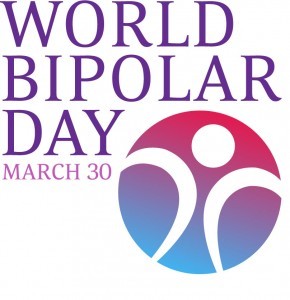Living With Bipolar Disorder & Chronic Body Pain: 6 Dilemmas

6 Problems that Come When You Have Bipolar Disorder and Chronic (Body) Pain Disorders:
- Sleep schedule is out of whack–In addition to being a mood disorder, bipolar is also a sleep disorder (as my colleague Melody Moezzi notes in this article). Keeping your sleep schedule in order is essential to keeping depression and mania (or hypomania for those with bipolar 2) at bay but the very nature of bipolar disorder makes it hard to sleep and wake up at the same time everyday. After my bipolar diagnosis, it took me a few years to get my sleep hygiene in order. Today, I use many tools to regulate my sleep-wake-cycle like light therapy, Arbonne’s sleep well therapy, Arbonne’s Unwind Aromatherapy, and exercise (note: don’t exercise too late in the day if you have bipolar disorder because it will make it hard to sleep). But, as I acquired more diseases, it has become harder to sleep at the same time everyday. Myasthenia gravis makes me tired during the day and I can’t control it. When I fall asleep during the day, I’m up at night, which is really bad for bipolar disorder mood swings. Insomnia sometimes leads to hypomanic episodes, which are followed by depression. One strategy I’ve used is listening to really loud music during the day so I don’t fall asleep. (I am open to any suggestions for loud music, if you have any.) People who have both bipolar and chronic body pain diseases (that often come with fatigue) face dilemmas: Should I sleep if my MG is bad? What if my body really needs the nap and I just can’t stay awake? But if I sleep now, does this mean I’ll be up all night? In addition to fatigue, pain often keeps us up at night–causing insomnia–which wreaks further havoc on our circadian rhythms.
- Pain often leads to depression–Obviously, bipolar disorder by itself can cause depression. There are many triggers common to people with bipolar like school or work stress, deadlines, and relationship problems. When you face chronic pain, however, pain itself can become a trigger. I remember one day I woke up for work in pain and it hit me: I woke up in extreme pain yesterday. And the year before that. And the year before that. And I’ll probably wake up in pain tomorrow. What am I doing? Four years into my battle with MG, I entered a deep depressive bout. I saw my therapist (seeing a therapist regularly is an important coping tool; see my article on 8 Tips for Maximizing Therapy) and I asked close friends for prayer. Making a list of my triggers has helped–if something is happening, a worsening of my pain, for example, I know I may need to see my therapist more than usual.
- Pain can lead to suicidal thoughts–I should start by noting that not every depressive and/or pain episode leads to suicide. However, 15% of people with bipolar disorder die by suicide; the risk of suicide is higher when a person is not treated. Making things worse chronic pain can also lead to suicidal thoughts. As Jenni Prokopy notes, 10% of suicides are completed by people with pain or chronic illness. For example, as cited in Psychology Today, “the suicide risk among fibromyalgia patients was ten times that of the general population.” Another study shows that people with chronic migraines and chronic back pain (two very common conditions) are more likely to attempt suicide, whether or not they suffer from depression or any psychiatric condition.
- You’re constantly putting out fires–It’s so hard for me to answer the question, “How are you?” when a friend asks although I am grateful for people who ask. I can be doing really well with the bipolar disorder but not the psoriasiform dermatitis and MG. Often times, a setback in one disease precipitates a setback in another. Last August, I had an acutely painful episode of PCOS, which in turn triggered a setback with the myasthenia gravis that climaxed in September and early October. As I got better with the MG, I started to experience bipolar depression. My body was so worn out from fighting. It’s a roller coaster.
- Mental health discrimination makes it harder to get treatment for your pain–Often times, people who have both a mental illness and a chronic pain disease are told by doctors that we are “being overdramatic,” not really in pain, and doctors assume we are addicted to drugs. I’ve had really humiliating experiences with neurologists who did not take my pain seriously; one even yelling at me insisting I wasn’t really in pain and that I was “just depressed” (even though I was not depressed). Fortunately, I have really great doctors right now–who don’t assume I’m a liar–just because I have bipolar disorder. They listen to me. Recently, my new PCP prescribed a medication to treat my ear pain–something I’ve struggled with for years. Every time I meet a new doctor, I ask myself if this doctor will treat me like a human being deserving of dignity. Whenever possible, I encourage people to leave doctors who treat them like liars and find professionals who respect them. But I also understand that financial limitations, insurance factors, and bureaucratic red tape sometimes make it impossible to shop around.
- It’s harder to find people like you–Of course, any illness by itself, can be lonely. But when you have a combination, sometimes it’s hard to find people like you. I struggled to find friends who have both bipolar disorder and an autoimmune disease. I was so thankful to meet my friend Carol (through my mental health work); she has lupus and bipolar. She says I’ve taught her so much about living with bipolar disorder. But Carol has also taught me about how to live with an autoimmune disease; her example gives me hope. Building communities online through blogs, Facebook, Twitter, and Instagram has made this journey less lonely for me.
“Life sucks” is not the message of this article. But I hope it sheds light on what this misunderstood experience is like and engenders empathy. There are no easy answers, and I don’t pretend to have all the answers. You can read an article I wrote on this subject here, 5 Ways to Maintain Mental Health Despite Chronic Pain & Fatigue. I have lived in pain every minute of every day for eight years now; I do not think it is hopeless even though there are moments when it feels like it. In the midst of this suffering, I’ve learned to understand others better and have forged authentic friendships with terrific people I never would have met otherwise.
RESOURCES
- Suicide Prevention Hotline: 1-800-273-TALK (8255) – they are a 24/7 hotline
- International Bipolar Foundation
- 6 Cheap Ways to Get Mental Health Care from everyday HEALTH
- 5 Ways to Maintain Mental Health Despite Chronic Pain & Fatigue
- my TEDx Talk: How to Get Stuff Done When You Are Depressed
–Your Stylist, Jessica Gimeno





Yes I am bi polar and have chronic pain but people just don’t understand.
Oh Alisa, I hope you find comfort in this blog and online communities. Email me (I’ll send you my email) if you want to and I can send you links to some bipolar and chronic illness groups. It doesn’t take away the pain but I have found that community makes it less lonely. You can also sign up for my free monthly newsletter; I send tips on living with mental illness and chronic illness. Also you can get a free Depression Tool Kit for subscribing — http://www.fashionablyillgift.com.
You are indeed a beautiful woman – outside and in! And a great example for those suffering from any disorder!
Dear Karen,
Thank you for your kindness. I will be checking out your blog–can’t wait. –xoxo, Jessica
Thank you for such a remarkably honest and insightful article. I can relate to so much of what you have written and found it very encouraging. I look forward to reading other articles you have written.
G-D bless you as you help others by sharing your trials and triumphs. (((gentle hugs)))
Oh Donna! Thank you for your kind words–you are encouraging me as well. (BTW, one way to keep up with my articles and speeches is by subscribing to the newsletter at http://www.fashionablyillgift.com.) God bless you too. XOXO, Jessica